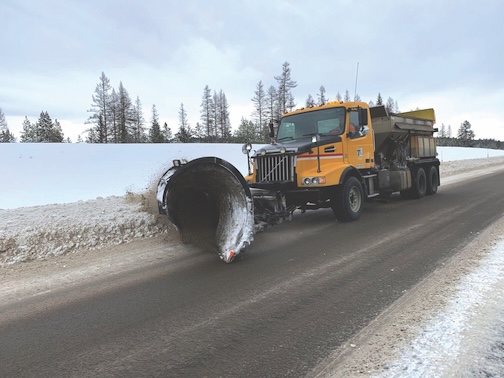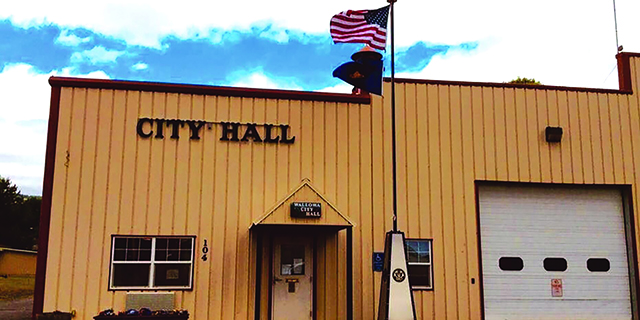LTD backs off payroll tax increase
Published 5:00 pm Tuesday, May 13, 2014
Lane Transit District has hit the brakes on its proposal to raise its payroll tax, the transit agency’s main source of operating revenue.
The agency said it will wait at least a year before taking the tax increase idea out for a public test drive again.
Trending
The delay comes after a study prepared by consultant ECONorthwest found that although the local economy continues to improve, economic indicators are still below their pre-Great Recession levels.
The study found that the local unemployment rate remains well above the average for the past two decades, that some measures of per-capita income have been stagnant or declining since 2008, and that building permit activity “remains far below pre-recession averages.”
The recovery “seems to be accelerating. The signs are positive,” Andrew Dyke, ECONorthwest’s senior economist, told LTD’s board of directors on Monday night while presenting the study’s findings. But, he added, “No one is super excited about where we are. There’s still room to go, but at the state and national level that’s sort of a consensus.”
The findings are important because state law requires that to justify a tax increase, the LTD board of directors must find that the local economy has recovered “to an extent sufficient to warrant the increase in tax.”
“While (the report is) positive, it’s not ‘Oh my gosh, we’re out of this recession,'” board Chairwoman Doris Towery said after the meeting.
Towery said the board will wait a year before resuming its discussion about the payroll tax proposal.
Trending
Some business people were critical earlier this year when LTD said it was considering raising the payroll tax. They said they local economy is too fragile to bear additional taxes.
Brittany Quick-Warner, director of business advocacy for the Eugene Area Chamber of Commerce, said LTD made a responsible decision.
“Our message is we’re really pleased that LTD took to heart and listened to some of the local business people and sort of realized there is a real concern that the economy is recovering but it’s slow,” she said.
The chamber represents about 1,100 area businesses.
Quick-Warner said the Eugene City Council also should heed the study’s findings as it weighs requiring city businesses to provide paid sick leave to employees.
LTD’s delay will allow two things, Towery said. First, it provides more time for the local economy to pick up even more steam, if recent trends hold up. And second, it will allow LTD to engage the community in a discussion about the value of the transit agency, she said. That conversation is intended to build public support for a tax increase proposal.
LTD’s 10-year financial outlook had assumed LTD would raise its payroll tax starting in January 2015, with board approval of the raise sometime this year.
In March, prior to the study’s completion, the board and its budget committee agreed to push off that start date of the tax hike until January 2017. The board adopted the updated financial outlook last month.
LTD officials stressed no decision has been made on the payroll tax as the numbers plugged into the financial outlook are placeholders until the board adopts an annual budget.
The financial outlook assumes revenue from the current payroll tax will increase 5 percent annually, without a tax rate increase.
It also assumes LTD will boost service each year over the next three fiscal years. LTD will add holiday service and adjust some routes during the coming budget year that starts July 1. It expects to add service to the new state psychiatric hospital in Junction City and the new veterans outpatient clinic in north Eugene in the 2016 fiscal year. Finally, the West Eugene EmX line is scheduled to start operations in January 2017.
The payroll tax is assessed on wages paid by businesses and the net earnings of self-employed people working in the district’s boundaries.
These taxes represent nearly two-thirds of the total revenue LTD is projected to receive in the current budget year; $27.3 million of a total of $41.8 million, not counting money that started the year in reserve.
By comparison, revenue from fares and group passes was projected to bring in a little more than $7 million.
In 2009, state lawmakers gave LTD the ability to increase the cap on its payroll tax from the current seven-tenths of one percent to eight-tenths of one percent, in increments over a number of years. To justify the increase, however, the LTD board had to make a finding of economic recovery, leading it to hire ECONorthwest to do the research late last year.
ECONorthwest found that economic indicators were improving, but virtually all of them were below their pre-recession levels.
Total employment was up in the Eugene-Springfield metropolitan area from the recession, but it had regained only about 30 percent of the jobs lost in the collapse, the study found.
The unemployment rate is at 7.7 percent, well below the nearly 15 percent rate at the height of the Great Recession. However, the current rate is higher than the 6.6 percent historic average in the area.
The declining unemployment rate also masks that the number of workers in the area’s labor force is the same as it was nine years ago, the consultant found.
Per capita wage and salary income has been flat since 2009, after declining sharply in the recession, the study found. However, Dyke expected measures of per capita income to increase in the future.









